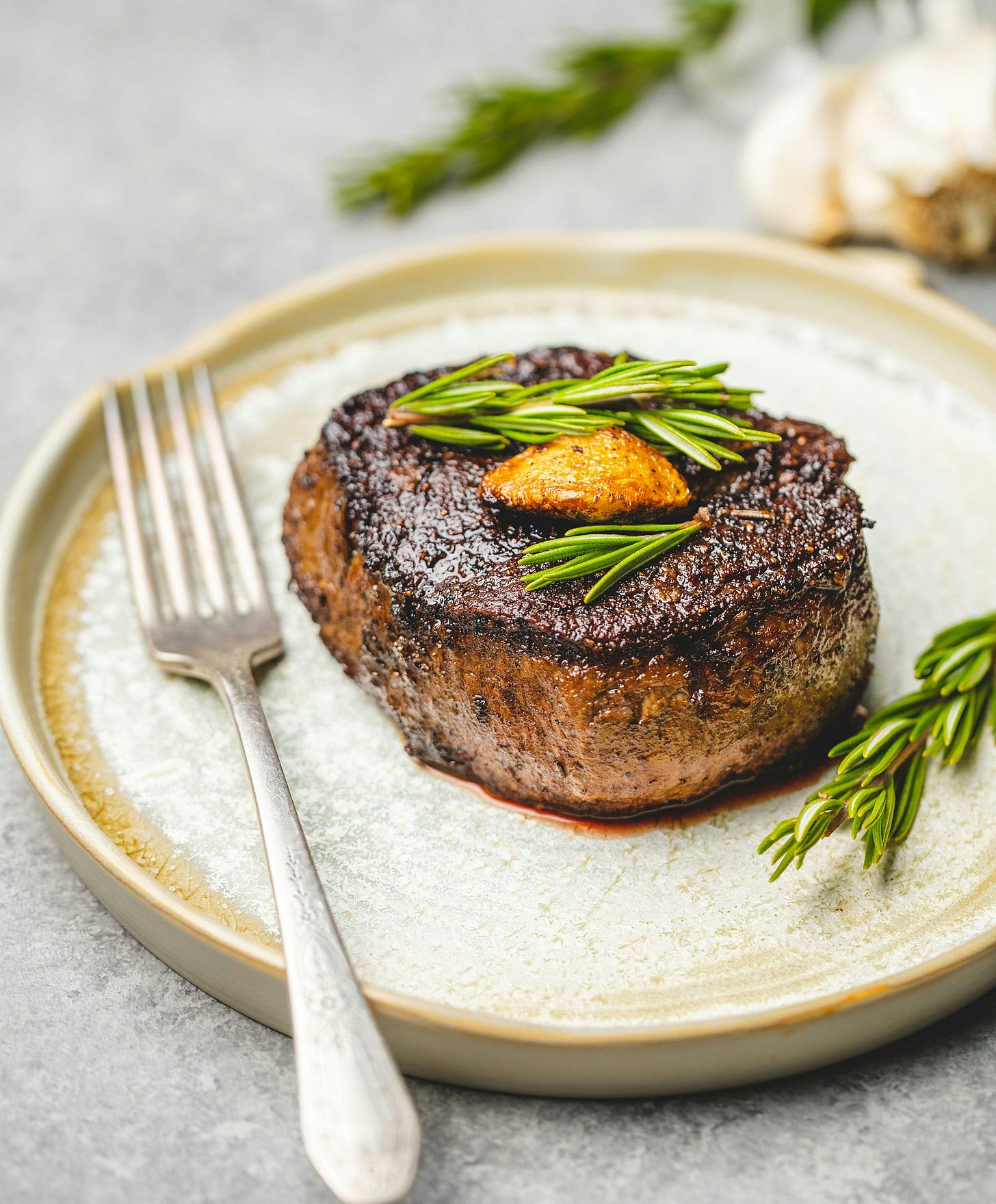Why Eating Too Much Protein Might Be Bad For Your Heart
Recently, protein has been added to many food items, which may not be a good idea.

Meat, eggs, and dairy products are high in protein. If you are vegan, many legumes and beans have a fair protein content, but not as much. However, do we need protein added to waffles, pasta, and candy? Even ice cream and water have been boosted with protein.
Food makers in 2024 introduced 97 new products with “protein” in the brand name, more than double the year prior, according to market-research firm Mintel.
It is fair to say that we have gone “protein crazy " as a society. But can you get too much of a good thing? The answer is yes.
How Much Protein Do We Need?
Most of us eat more than enough protein in our diets. U.S. nutrition recommendations call for healthy adults to consume 0.8 grams per kilogram of body weight a day. For a 150-pound person, that is about 54 grams, found in a half-pound chicken breast or two eggs with a cup of plain, nonfat Greek yogurt and nuts.
Excess Protein And Your Heart
Eating too much protein may have adverse health consequences. In terms of the heart, a high-protein diet may increase the risk of heart disease. Proteins contain amino acids, many of which are essential for good health. But ingesting too much of some of these compounds stimulates macrophages.
Macrophages are white blood cells that are usually beneficial in fighting infections and immune diseases. However, activating these cells can sometimes accelerate atherosclerosis (hardening of the arteries). Protein ingestion acutely elevates amino acid levels in blood and atherosclerotic plaques. Although there appears to be causal data for high protein intake making atherosclerosis worse in mice, human data are lacking.
One amino acid, leucine, increases the rate of atherosclerosis. This reference notes that these adverse effects are activated if a diet is more than 22 percent protein. However, large-scale human trials have not been done.
Many high-protein foods are also high in saturated fats, which may contribute to heart disease. This typically occurs with red meat. Dairy products are similarly high in protein. However, the negative cardiovascular effects of dairy saturated fats have now been questioned. Other high-protein sources are harmful if they are processed foods like bacon, beef jerky, and sausages.
Moderation
There is no reason to go “protein-crazy” with our diets. Most Americans get more than enough protein. And although protein is essential for muscle formation and maintenance, there is little evidence that eating more than the recommended amount leads to stronger muscles.
High protein, high fat, and low carbohydrate diets have been extolled as a cure for obesity, insulin resistance, and diabetes. In many, but not all people, this has some validity. However, the effects of this diet on heart health are far from settled.
I have always believed in diet moderation. Ultra-strict, high-fat, and high-protein diets often lack fiber, vitamins, and minerals, and they aren't easy to maintain for long periods. However, the recommended 45–65% of our diet as carbohydrates may be too generous for optimal health.
Everyone reacts differently to diets. I have a definite carb addiction. A small to moderate carbohydrate reduction and a concomitant increase in protein and healthy fats control my hunger swings and promote weight loss. This may not be true for you. And this is why large diet studies are so difficult.




It seems we need more science based guidelines for protein in older adults. It’s still an unknown. Can more protein prevent protein wasting associations with aging? I haven’t heard about heart damage with too much. How much is too much? Clearly there is a problem with protein intake and kidney disease. I’m on your side, shoot for moderate levels. I avoid meat almost anyways. Keep up the good insights.
So we get back to the Mediterranean diet. People need to have short chain fatty acids from fruit fibers so that they can make butyrate which is important for extracting or metabolizing B vitamins and it's always about the quality of carbohydrates and the quality of proteins and fats most Americans can just give up white flour if they have the money . It's important to rotate your food sources people who are switching to a more plant-based diet need to know how to cook beans to get rid of lectins and there are plenty of grains to have other than wheat .pseudo grains like buckwheat or quinoa are good to add to the diet ,as we age we need more digestive enzymes and I don't think you can just get them from fruit and vegetables .avocado or nuts are definitely better than commercial Fried Chicken.. people get obsessed with counting calories it's more important to consider the quality and the ratio of good nutrients to potentially detrimental ones. It's a damn shame that Donald Trump doesn't want information from the NIH to get out to the General Public. You still have TV stations telling you what I call Reader's Digest Health news from the 50s. If there's a chance that you can make your food and stay away from pre-made food that's stored in plastic I'm sure you would do better